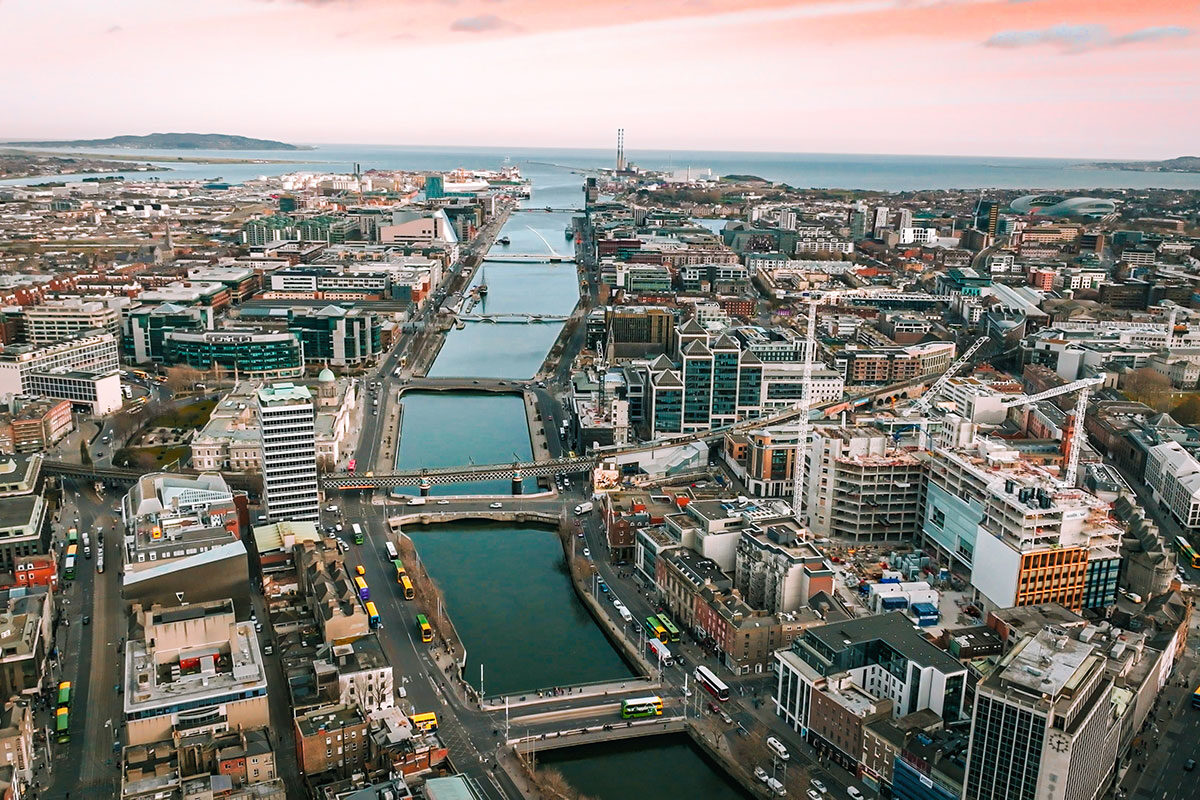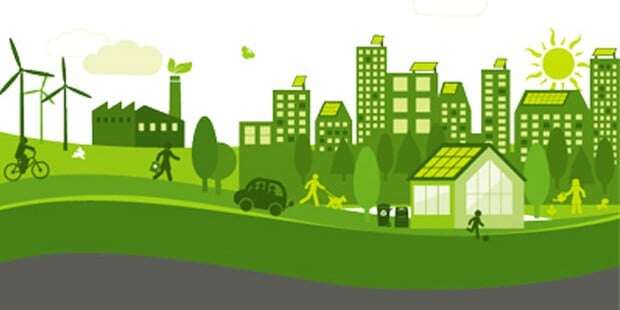Setting a Green Standard with ISO 14001
Communing with nature is a wonderful thing. And a natural element of any progressive environmental or green strategy. So is implementing an EMS....
4 min read
Caroline Geoghegan : Nov 24, 2023 12:00:43 PM

As expected, many of the measures announced in Budget 2024 are aligned to the government’s strategic vision for a more environmentally sustainable Ireland of the future. Driven by cabinet ministers from the Green Party, these new measures will see the government make significant investments in infrastructure, climate and agriculture.
A variety of climate-related tax initiatives and financial incentives were recently announced in Budget 2024 which sees the largest amount of funding in the history of the state being allocated to carbon negative measures including additional funding to promote the growth of indigenous forestry and organic farming.
But wait, there's more! These climate-positive measures include an increase in carbon tax as well as tax incentives for energy efficient equipment and energy micro-generation, also make provision for the allocation of €110 million in funding to drive an extensive reforestation programme.
The pièce de résistance? A jaw-dropping €14 billion investment in a nationwide infrastructure, climate, and nature plan.
Part of that plan will be a three billion Climate and Nature Plan. Due to be rolled out between 2026 and 2030 the plan is being hailed by many environmental campaigners, including Friends of the Earth Chief Executive, Oisin Coughlan, as a “landmark development”.
In addition to the additional investment in tree-planting, Minister of State for Agriculture, Food and the Marine, Pippa Hackett, also announced the launch of the Native Tree Area Scheme, which allows for the unlicensed planting of up to one hectare of native woodland species.
The raft of budgetary measures announced by Minister for Finance, Michael Mc Grath, includes a raft of tax reliefs and incentives in support of both commercial and domestic sustainable energy management. The zero Vat rate on the supply and installation of solar panels for domestic use has been extended to include schools, the BIK relief for electric vehicles and VRT relief for battery electric vehicles have both been extended to the end of 2025.
Currently details of the newly announced Climate and Nature Fund are not available but indications are that it will include large investment in biodiversity conversation and greenhouse gas reduction, the EPA projections for which indicate that Ireland is tracking 20% short of its EU commitments to reduce emissions to below 50% by 2030.
What is clear, is that this heightened budgetary focus on a green-centric agenda can only benefit the organic farming and food sectors. With its strong environment focus, the budget aims to both shore up and reinvigorate indigenous sectors such as agriculture, fisheries and forestry.
3,000 years ago, over 80% of Ireland was covered in forestry. After the 1543 enactment of Henry VIII’s Forest Act the deforestation of Ireland accelerated, so much so, that by the year 1600, Irish forest cover had been slashed to 12%.
In 2023, it stands at 1.5%.
Announcing the Euro 110 billion funding allocation for reforestation for 2024, Minister for Agriculture, Charlie Mc Conalogue told journalists that the funding allocated to the new National Forestry Programme represented the largest investment in planting native woodland in the history of the state.
While many argue that combined these measure still do very little to achieve a just transition to a lower carbon future, they do nonetheless incentivise strategic sectors and help accelerated development in key areas such as renewable energy.
Under the new forestry programme, premiums paid to farmers will increase up to 66% depending on the type established, while a further Euro 700 million is set to help drive sustainable agri initiatives. Euro 57 million is being set aside to support organic farming and then there’s the Euro 110 million investment in forestry, much of which will be paid out to landowners and farmers to plant trees on their land. Under the scheme, farmers and landowners are set to be paid up to Euro 22k per hectare planted with new trees.
All of these incentives are designed to drive change, and with change comes change management. Transitioning to environmental best practices and applying sustainable policies requires a green-centric systems framework. ISO standards are designed to empower businesses to achieve excellence in their chosen field or sector. As ISO 9001 drives quality excellence, ISO 14001 drives sustainable or environmental excellence.
Sustainability is now an urgent strategy for most modern businesses including those in the Agri, Agri-food, Marine and Land Development Sectors.
ISO 14001 Environmental Management System is designed to enable businesses to understand and manage their environmental obligations by adopting a more systemic approach to achieving continuous improvement in ‘Green Performance’.
This green performance can in turn be further enhanced through participation in existing and upcoming government initiatives. But in engaging with these programmes those heading up these sectors, from large farmers to estate managers to fish production will have to adopt a rigorous systemic approach when it comes to transitioning operations to meet the legislative and regulatory requirements of so doing.
What has become clear over the last two decades, is that change process management and business process transformation programmes are no longer of irrelevance to sectors outside of construction, manufacturing and finance/professional services. Best practice management systems have become the backbone of process-driven and sustainability-centric businesses including agriculture, agri-food processing and land management.
It is no surprise that the agriculture, forestry and land use sectors are now seen as key contributors to the commission’s climate goals (LULUCF). Sustainable land-management practices such as conservation tillage, an area earmarked for funding under Budget 2024, help maintain good soil health by increasing organic matter and improving soil quality.
But, like every other management practice, it needs a rules-based framework to ensure it can meet the program requirements and achieve its sustainability objectives whilst simultaneously driving optimal performance.
By building a process-based framework such as an Environment Management System, organisations can achieve consistent environmental and energy performance both of which can mitigate against the risk of rising energy costs whilst simultaneously achieving regulatory compliance by reducing energy and material waste, including effluence, and carbon footprint.
In driving sectors and individual business owners towards a process-oriented approach to deliver on programme requirements, the new budgetary measures announced in Budget 2024 will, albeit inadvertently, help prepare them to achieve ISO 14001.
For more information on the sustainably-oriented initiatives announced for Budget 2024 see the official government website
Learn more about CG Business Consulting’s ISO 14001 driven Sustainability Services.

Communing with nature is a wonderful thing. And a natural element of any progressive environmental or green strategy. So is implementing an EMS....

Bizquip Commercial Interiors appproached CG Business Consulting off the back of a recommendation from a previous client, wanting assistance on...

Want your business to reduce its carbon footprint? Start by 'binning' single-use coffee cups.